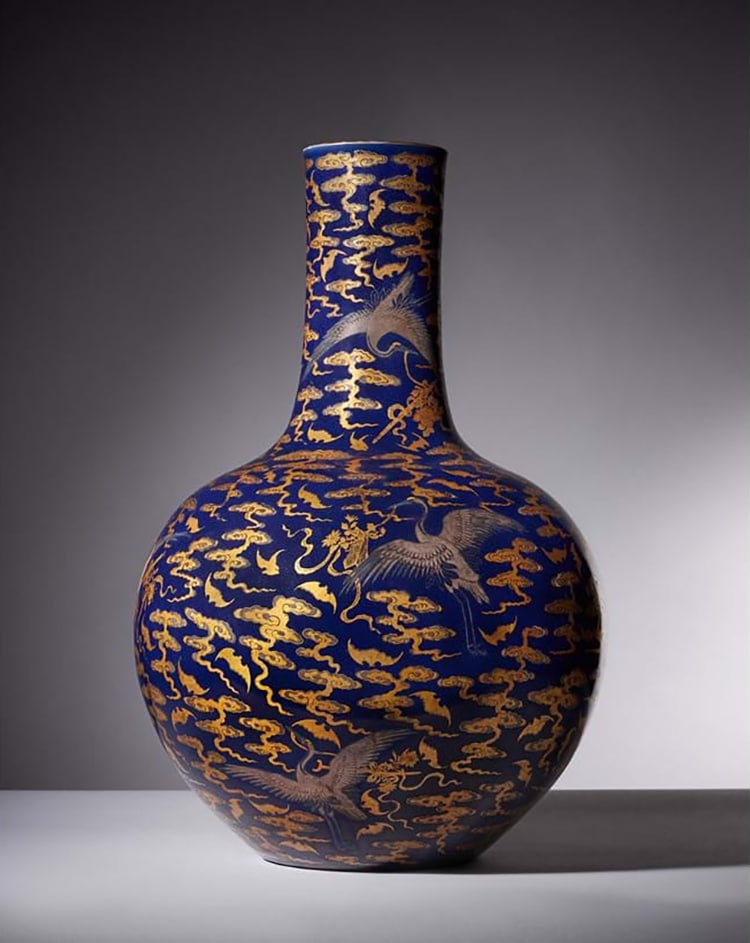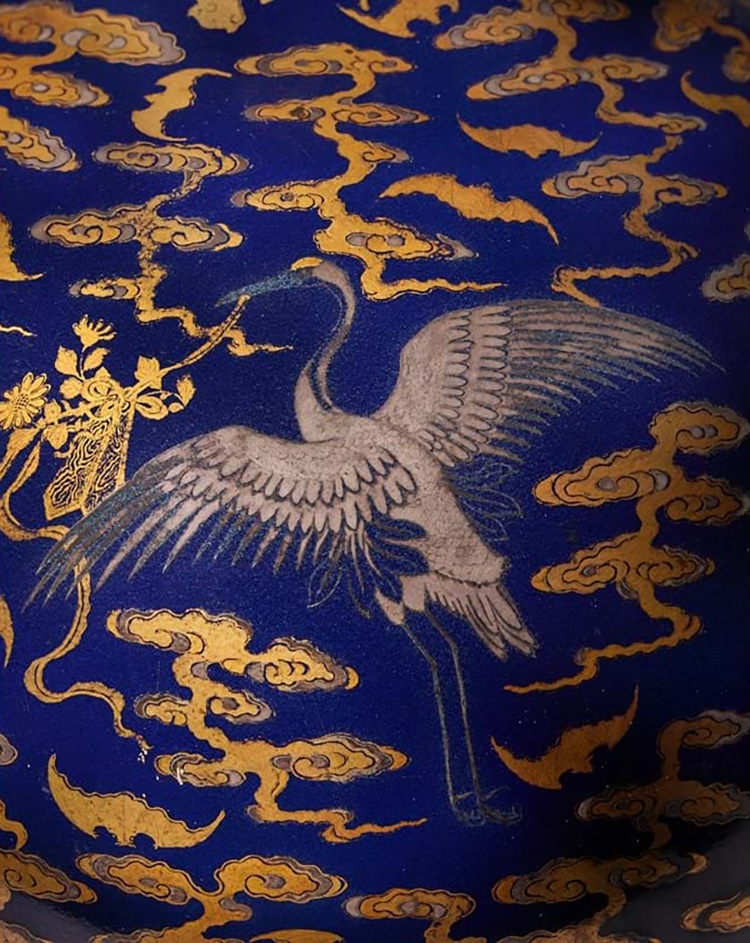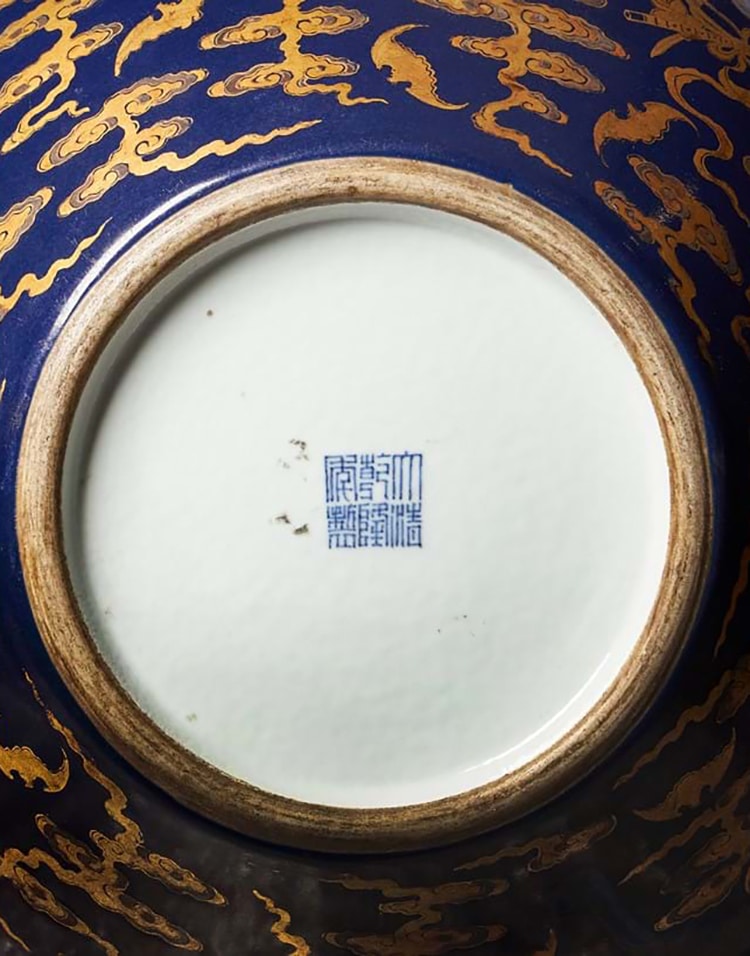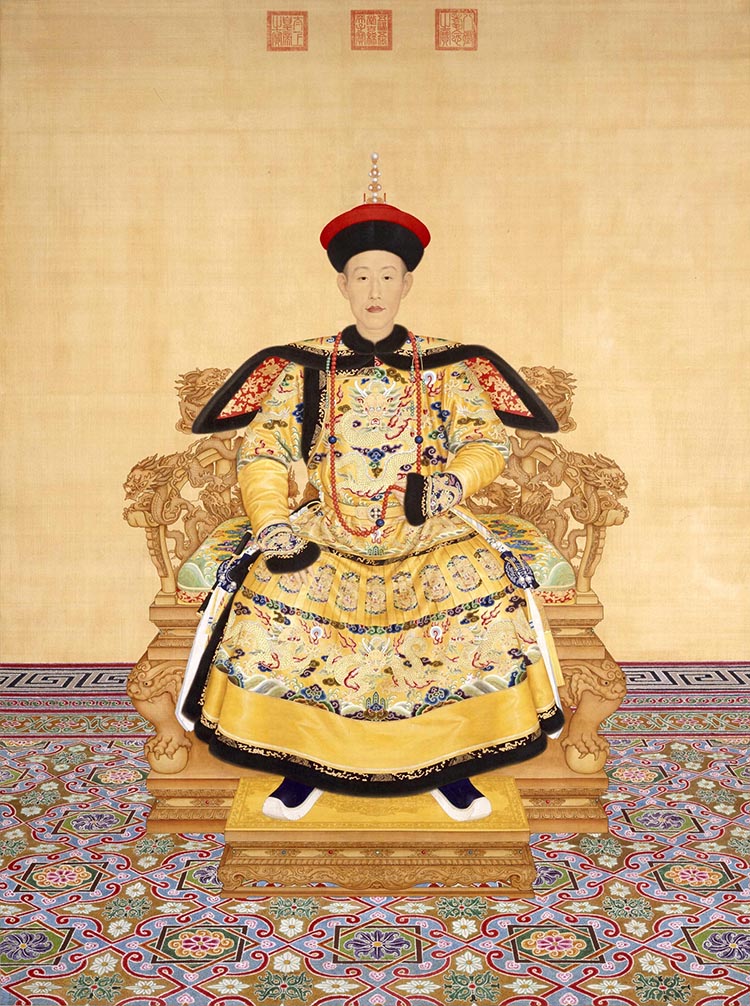
The magnificent imperial vase which languished for years in a kitchen. (Photo: Dreweatts)
Who doesn't dream about stumbling on a trove of fabulous, valuable artwork? For some people, the discovery of a lifetime is an ancient Roman bust waiting on a Goodwill shelf or a Ming Dynasty bowl at a yard sale. For one family in the UK, their treasured possession turned out to have been sitting in their kitchen for years. Purchased by a surgeon and passed down to his son, the vase turned out to be a Chinese imperial work of art from the era of the famed Qianlong Emperor.
The provenance of the vase is unknown, so how and when it traveled from China to the UK is a mystery possibly shrouding the imperialistic looting. What is known is that a surgeon in the UK purchased the vase for a few hundred pounds in the 1980s. Eventually, it passed to his son. One of the son's friends noticed the two-foot-tall blue and gold bulbous vase sitting in his friend's kitchen. The friend is an antiques specialist and alerted the son of his suspicion that the vase was in fact a valuable artifact.
Crafted of porcelain, the vase is glazed in “sacrificial blue,” a name that hearkens to the blue vases used in sacrifices. It is decorated with clouds, palms, and cranes in silver and gilt (gold). These are symbols from Taoism (or Daoism), the philosophy and religion popular in 18th-century China. The Qianlong Emperor ruled from 1735 to 1796. A member of the powerful Qing Dynasty of China, he is one of the longest-reigning rulers in history. On the base of the vase is a mark signifying its manufacture in the Qianlong period, the years of the Qianlong Emperor's reign. The vase was made for the emperor and likely kept in an imperial palace until it was given away (or stolen).
The vase is a shocking find, but a delight for an auction house. The vase went to auction through Dreweatts where it fetched $1.8 million at auction, well over the $186,000 estimate. The house reported “very strong interest” from bidders in China, Hong Kong, the U.S., and the UK, demonstrating “the demand for the very finest porcelain.” A technical wonder of art and craftsmanship, the vase is a historic, royal piece despite its humble recent location in a kitchen.
A UK man discovered the vase in his kitchen was actually a valuable Qianlong-era Chinese antique.

Detail of a crane in gold. (Photo: Dreweatts)
The piece was made for the 18th-century Qianlong Emperor, although it is unknown how it came to the UK.

The six-character mark of the Qianlong period on the base of the vase. (Photo: Dreweatts)
The vase fetched $1.8 million at auction.

The Qianlong Emperor, who lived from 1711-99 (r. 1735-96), painted by Giuseppe Castiglione. (Photo: Wikimedia Commons, Public domain)
This is one of several stories of treasures discovered in unexpected places.
No comments:
Post a Comment